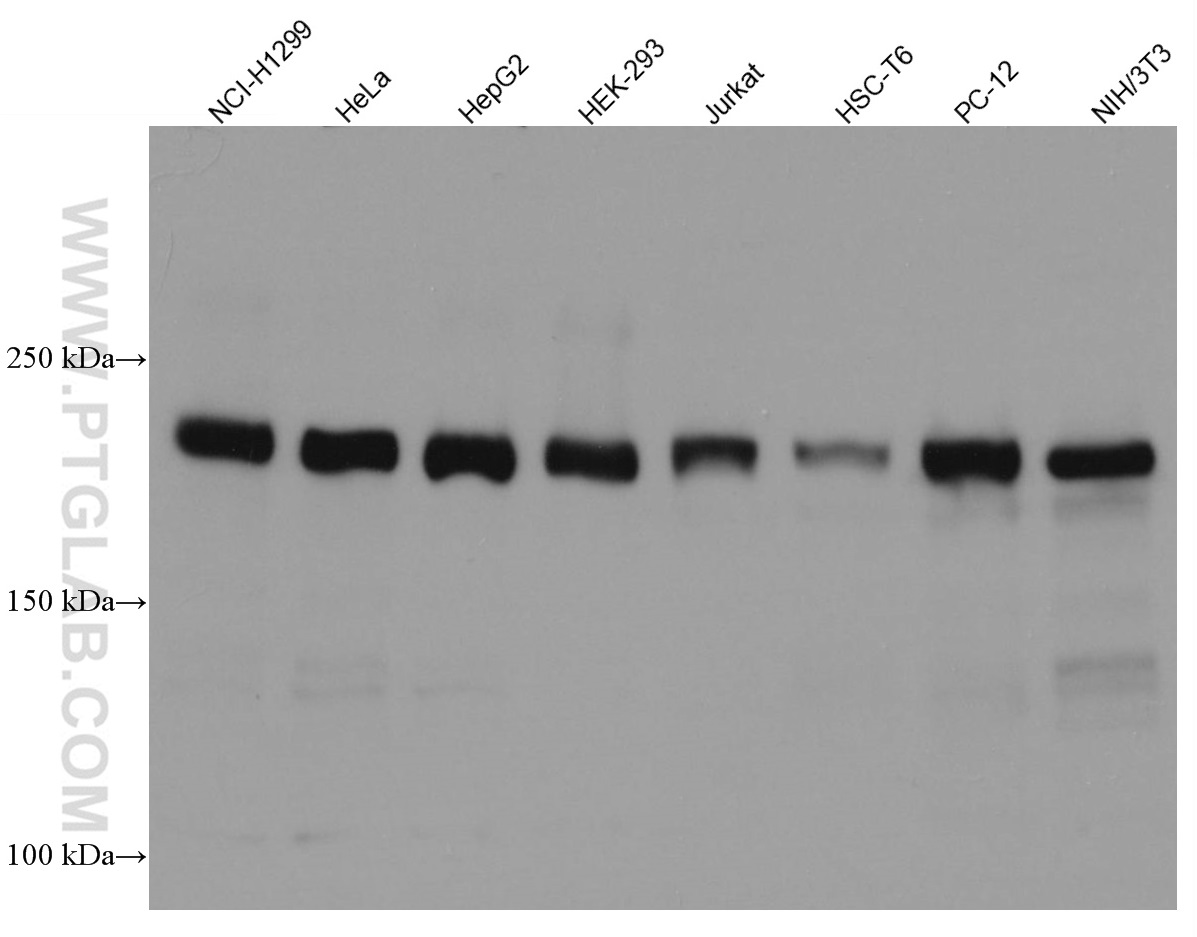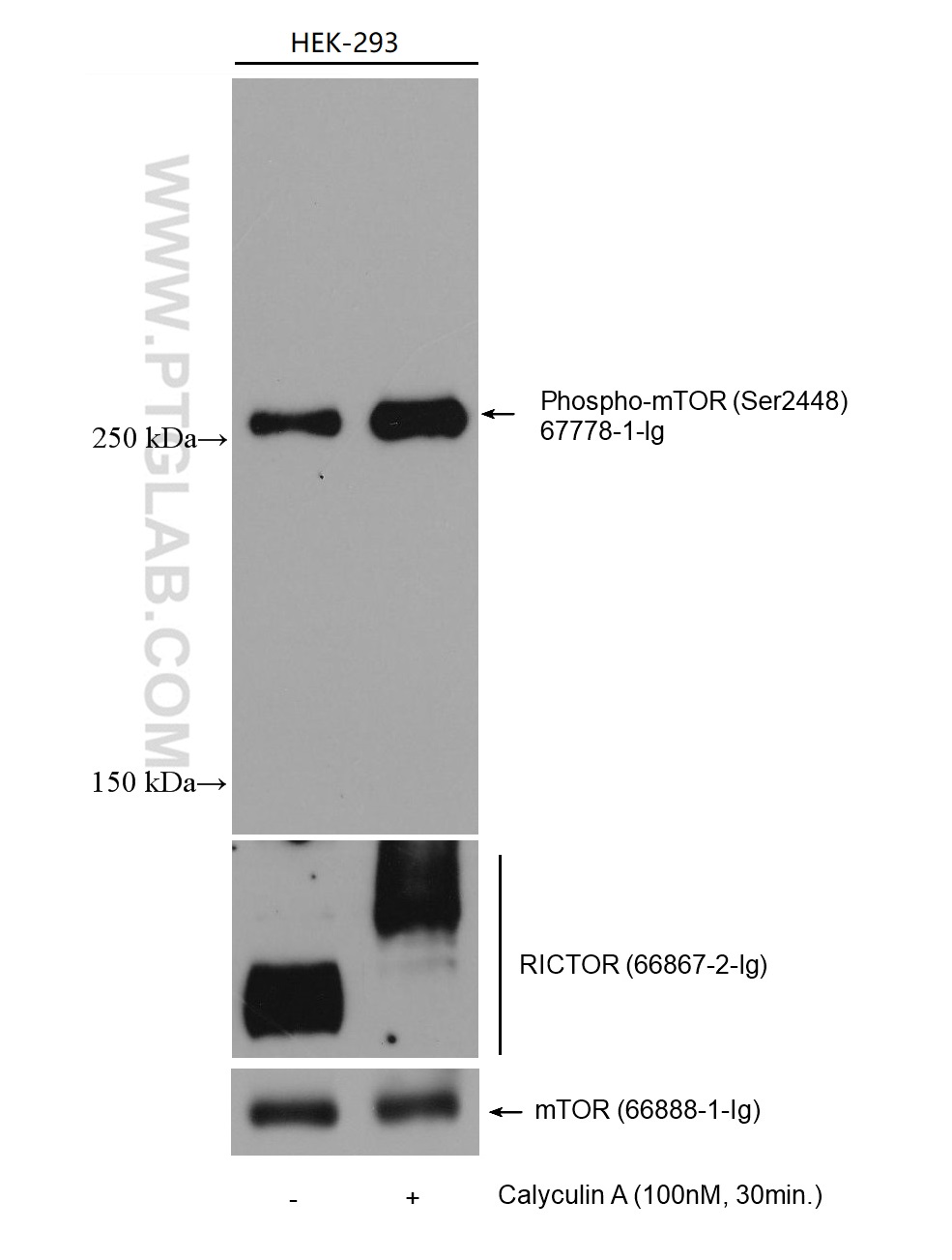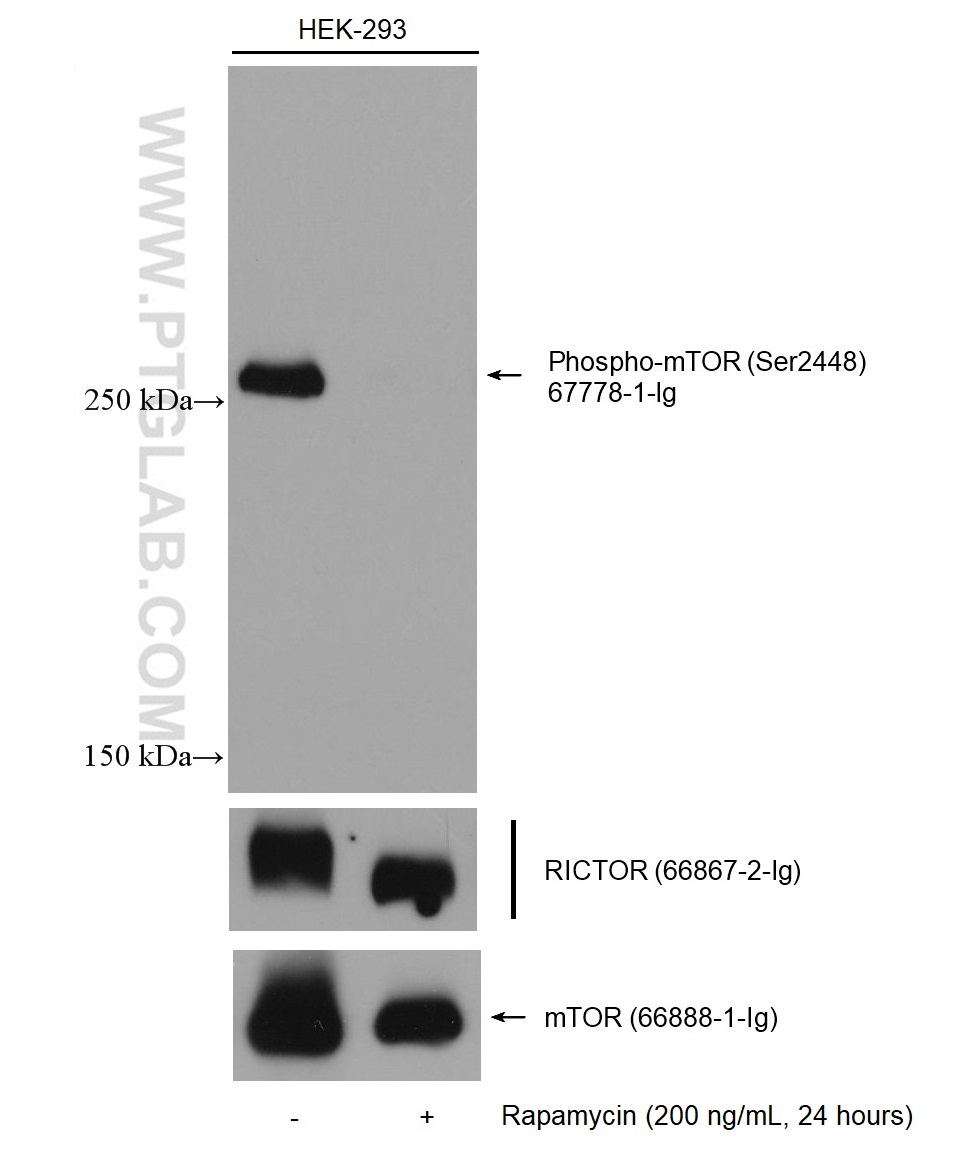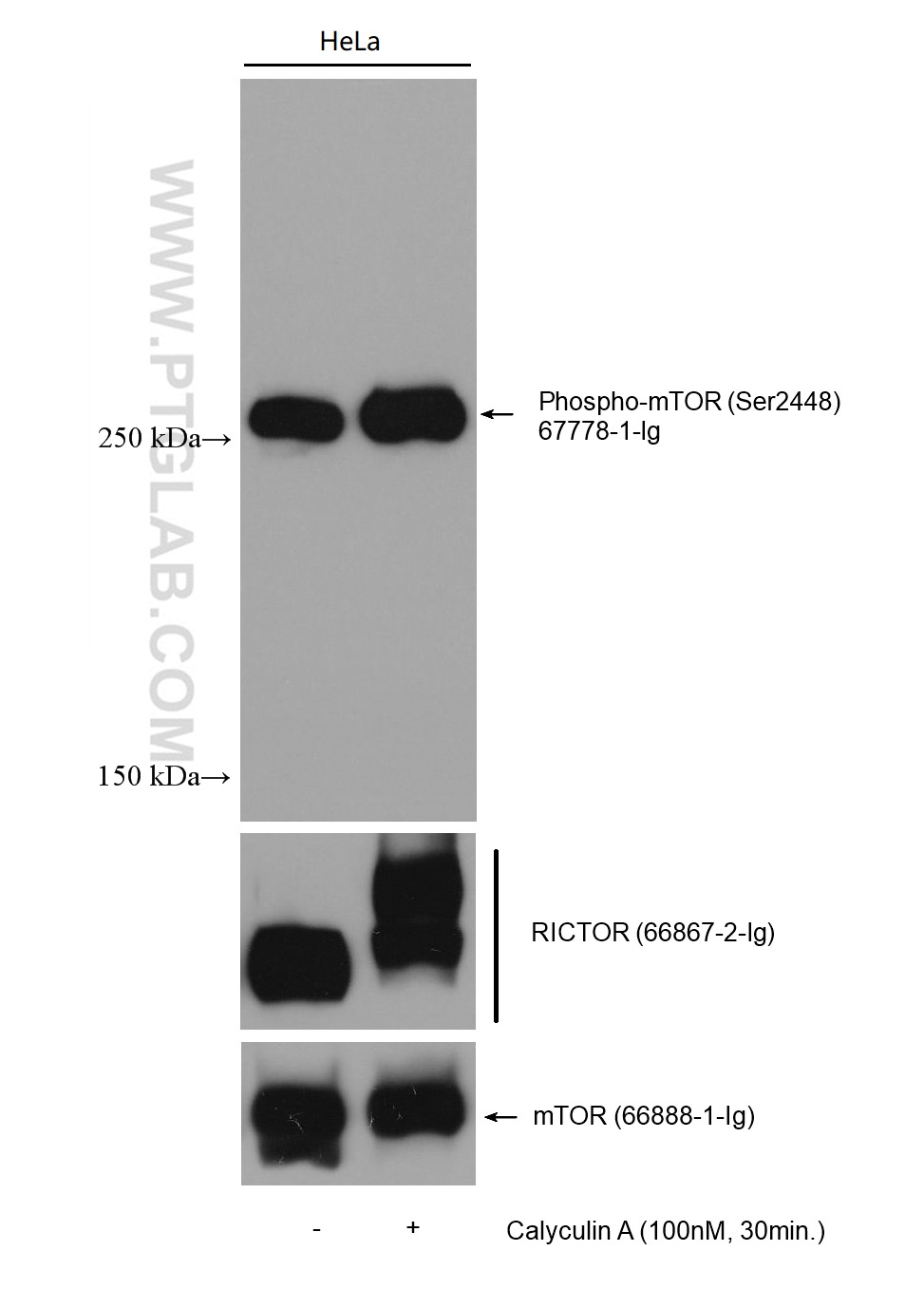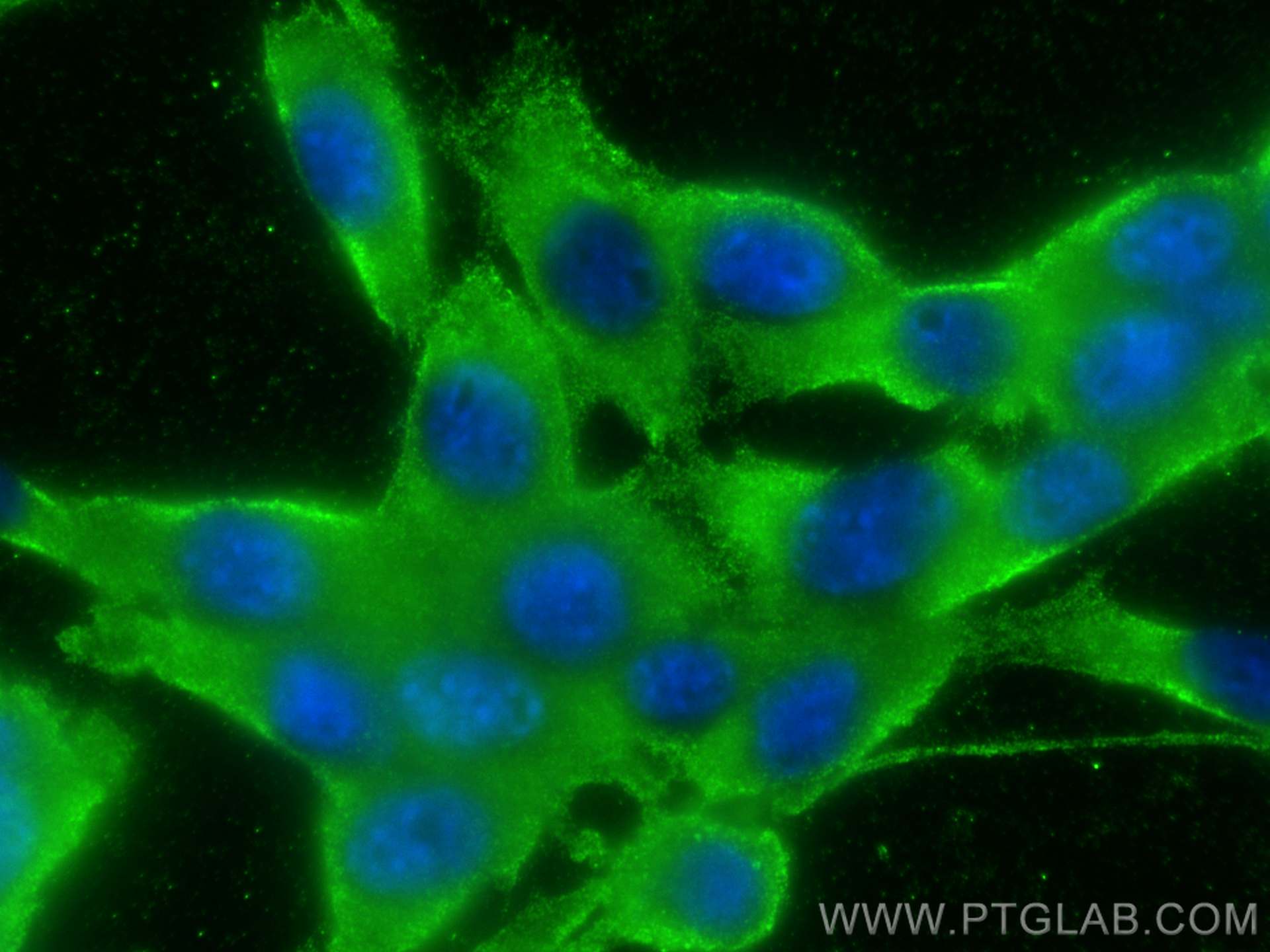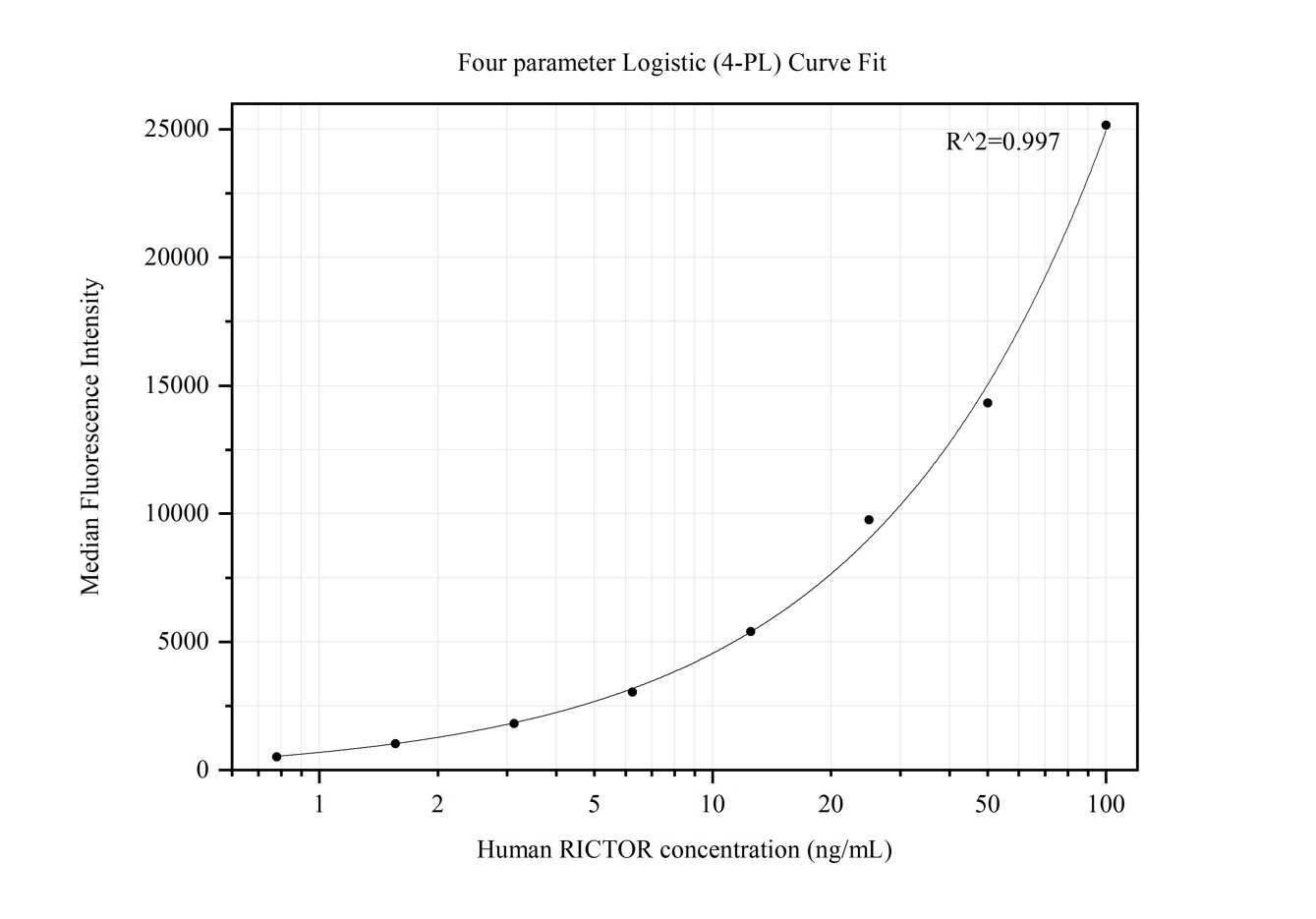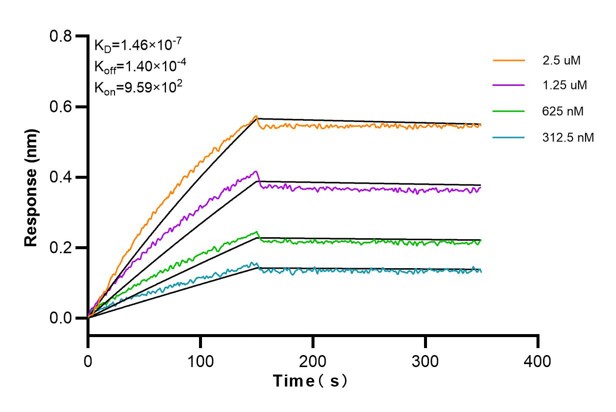验证数据展示
产品信息
66867-2-PBS targets RICTOR as part of a matched antibody pair:
MP50234-1: 66867-2-PBS capture and 66867-3-PBS detection (validated in Cytometric bead array)
Unconjugated mouse monoclonal antibody pair in PBS only (BSA and azide free) storage buffer at a concentration of 1 mg/mL, ready for conjugation.
This conjugation ready format makes antibodies ideal for use in many applications including: ELISAs, multiplex assays requiring matched pairs, mass cytometry, and multiplex imaging applications.Antibody use should be optimized by the end user for each application and assay.
| 经测试应用 | WB, IF/ICC, Cytometric bead array, Indirect ELISA Application Description |
| 经测试反应性 | human, mouse, rat |
| 免疫原 |
CatNo: Ag28487 Product name: Recombinant human RICTOR protein Source: e coli.-derived, PET28a Tag: 6*His Domain: 1-183 aa of BC029608 Sequence: MAAIGRGRSLKNLRVRGRNDSGEENVPLDLTREPSDNLREILQNVARLQGVSNMRKLGHLNNFTKLLCDIGHSEEKLGFHYEDIIICLRLALLNEAKEVRAAGLRALRYLIQDSSILQKVLKLKVDYLIARCIDIQQSNEVERTQALRLVRKMITVNASLFPSSVTNSLIAVGNDGLQERDRM 种属同源性预测 |
| 宿主/亚型 | Mouse / IgG1 |
| 抗体类别 | Monoclonal |
| 产品类型 | Antibody |
| 全称 | rapamycin-insensitive companion of mTOR |
| 别名 | 1D1C4, AVO3 homolog, hAVO3, KIAA1999, Rapamycin-insensitive companion of mTOR |
| 计算分子量 | 192 kDa |
| 观测分子量 | 192 kDa |
| GenBank蛋白编号 | BC029608 |
| 基因名称 | RICTOR |
| Gene ID (NCBI) | 253260 |
| RRID | AB_2882204 |
| 偶联类型 | Unconjugated |
| 形式 | Liquid |
| 纯化方式 | Protein G purification |
| UNIPROT ID | Q6R327 |
| 储存缓冲液 | PBS only, pH 7.3. |
| 储存条件 | Store at -80°C. The product is shipped with ice packs. Upon receipt, store it immediately at -80°C |
背景介绍
RICTOR, is a key component of the mTOR complex 2 (mTORC2) and is required for phosphorylation of Akt at serine 473. RICTOR is the upstream kinase of several AGC kinase family members including AKT, SGK, S6K mutants and several PKC isoforms. Activation of RICTOR-mTORC2 modifies actin organization and promotes cell proliferation and survival. Rictor is overexpressed in several cancers leading to hyperactive mTORC2 and has been shown to play a causal role in glioma formation. Rictor expression has been demonstrated to be regulated transcriptionally and via protein degradation.

